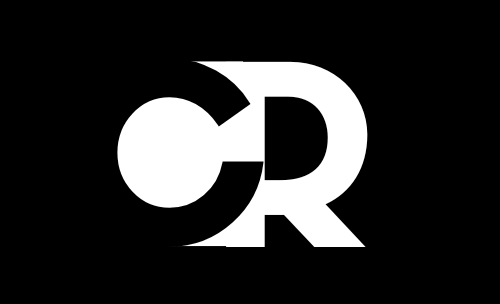What Credit Score Is Needed To Buy A House?

Buying a home is one of the biggest financial decisions most people make, and your credit score plays a key role in whether you qualify for a mortgage. Lenders use this three-digit number to measure how likely you are to repay a loan. A higher score can make it easier to get approved and secure a lower interest rate, while a lower score may limit your options or increase costs.
Understanding the minimum credit score needed to buy a house helps you prepare before you start house hunting. Different loan programs such as conventional, FHA, VA, or USDA have their own requirements, and factors like your income, debt-to-income ratio, and down payment also influence approval. Knowing these details ahead of time can save you money and speed up the homebuying process.
Why Your Credit Score Matters When Buying a Home?
Your credit score is one of the first things lenders review when you apply for a mortgage because it reflects how reliably you handle debt. This three-digit number, typically ranging from 300 to 850, is calculated from your payment history, the amount of debt you carry, the length of your credit history, and other financial habits. A strong score tells lenders you’re less risky, which can help you qualify for a home loan with better terms.
A higher credit score doesn’t just increase your chances of approval it can also save you thousands of dollars over the life of your mortgage. Borrowers with excellent scores often receive lower interest rates and may qualify for smaller down payments. On the other hand, a lower score can mean higher rates, extra fees, or the need for a larger down payment to offset the lender’s risk. By understanding the importance of your credit score early in the homebuying process, you can take steps to strengthen it and position yourself for a smoother, more affordable purchase.
Minimum Credit Score Requirements by Loan Type
Different mortgage programs have their own credit score standards, so the type of loan you choose directly affects the score you’ll need. Here’s how the main options compare:
- Conventional Loans – Backed by private lenders and not insured by the government, conventional loans typically require a credit score of at least 620. Borrowers with higher scores think 740 or above often qualify for the most competitive interest rates and lower private mortgage insurance (PMI) costs.
- FHA Loans – Designed for buyers with limited savings or weaker credit, FHA loans are more flexible. You can qualify with a score as low as 580 if you can make the standard 3.5% down payment. If your score falls between 500 and 579, you may still be approved, but you’ll need to put down at least 10%.
- VA Loans – Available to eligible veterans, active-duty service members, and some surviving spouses, VA loans have no official minimum credit score set by the Department of Veterans Affairs. However, most lenders look for at least a 620 score to approve the application.
- USDA Loans – Aimed at buyers in designated rural and suburban areas, USDA loans usually require a minimum score of 640 for streamlined processing. Some lenders may consider lower scores, but that often means extra documentation or stricter underwriting.
Knowing these requirements helps you match your credit profile with the right loan program, making it easier to plan your next steps and avoid surprises when you apply.
How Credit Score Affects Your Mortgage Rate?
Your credit score doesn’t just determine whether you qualify for a mortgage it directly impacts how much you’ll pay in interest over the life of the loan. Lenders use tiered pricing, meaning borrowers with higher scores are rewarded with lower rates because they’re viewed as less risky. Even a small difference in rate can add up to tens of thousands of dollars in savings over a 15- or 30-year mortgage.
For example, a buyer with a score above 760 might secure one of the best available rates, while someone with a score in the mid-600s could pay half a percentage point or more above that. On a $300,000 loan, that small gap can translate into hundreds of extra dollars every month and significantly higher total interest over time.
Your rate also affects other costs, such as private mortgage insurance and closing expenses, which are often lower when your score is strong. That’s why improving your credit before applying for a mortgage is one of the most effective ways to reduce your long-term housing costs and make homeownership more affordable.
Other Factors Lenders Consider Beyond Credit Score

While your credit score is crucial, it’s only part of the picture lenders review when deciding whether to approve a mortgage. They also look closely at your debt-to-income (DTI) ratio, which compares your monthly debt payments to your gross monthly income. A lower DTI typically below 43% shows that you have enough income to comfortably manage a mortgage along with other debts.
Your employment history and income stability matter, too. Lenders like to see steady work and reliable earnings for at least the past two years, as this signals that you can keep up with regular mortgage payments. They’ll also verify your assets, including savings, investments, and cash reserves, to ensure you have funds for a down payment, closing costs, and a financial cushion for unexpected expenses.
Finally, the size of your down payment can strengthen your application. A larger down payment reduces the lender’s risk, which might help offset a slightly lower credit score or higher DTI. By understanding these additional factors and preparing your finances accordingly you can improve your chances of approval even if your credit score isn’t perfect.
Tips to Improve Your Credit Before Applying for a Mortgage
Strengthening your credit score before you apply for a mortgage can open the door to better loan options and lower interest rates. Start by paying all bills on time, as your payment history has the biggest impact on your score. Even one late payment can hurt, so set up reminders or automatic payments to stay consistent.
Next, work on reducing credit card balances and other revolving debt. Aim to keep your credit utilization the amount of available credit you’re using below 30%, and ideally closer to 10%. Paying down balances not only improves your score but also lowers your debt-to-income ratio, another key factor lenders consider.
Check your credit reports from all three major bureaus Experian, Equifax, and TransUnion at least several months before you plan to buy. Dispute any errors you find, such as incorrect account details or outdated negative marks, because fixing these can quickly boost your score. Avoid opening new credit lines or taking on large loans in the months leading up to your application, as these actions can temporarily lower your score and raise red flags for lenders.
Finally, if your credit history is thin, consider using tools like secured credit cards or credit-builder loans to establish a record of responsible borrowing. Taking these steps early gives you time to raise your score and secure a more affordable mortgage when you’re ready to purchase a home.
Steps to Check and Monitor Your Credit Score
Regularly checking your credit score helps you stay informed and catch potential problems before you apply for a mortgage. Start by getting a free credit report from each of the three major credit bureaus Equifax, Experian, and TransUnion at AnnualCreditReport You’re entitled to one free report per bureau every 12 months, and during certain periods, weekly reports may be available. These reports show your full credit history, though they don’t always include your numerical score.
To see your actual score, use reputable sources such as your bank, credit card issuer, or a trusted financial website, many of which provide free monthly updates. Some mortgage lenders also offer prequalification tools that give you an estimated score without affecting your credit.
Once you know your numbers, set up credit monitoring or alerts to track any changes. Many services notify you of new accounts, hard inquiries, or suspicious activity, which can help you spot identity theft early. Consistently reviewing your score and report allows you to address errors, pay down debt strategically, and build a stronger credit profile well before you submit a mortgage application.
Key Takeaways for First-Time Homebuyers
Your credit score is one of the most important factors in qualifying for a mortgage and securing an affordable interest rate. While conventional loans typically require a minimum score of 620, government-backed programs like FHA, VA, and USDA loans offer more flexible options for buyers with lower scores. Still, the higher your credit score, the more likely you are to receive favorable terms and save money over the life of your loan.
Remember that lenders evaluate more than just your credit number. A healthy debt-to-income ratio, stable employment, and a solid down payment can strengthen your application, even if your score isn’t perfect. By checking your credit early, correcting errors, paying bills on time, and reducing balances, you can steadily improve your profile before you apply.
For first-time buyers, preparation is key. Start reviewing your finances months in advance, explore different loan types, and monitor your credit to avoid surprises. With a well-managed credit history and careful planning, you’ll be in a stronger position to qualify for a mortgage and purchase a home with confidence.
Final Thoughts
Understanding the credit score needed to buy a house and how it influences loan approval and mortgage rates gives you a clear advantage in the homebuying process. By knowing the minimum requirements for different loan types, improving your credit habits, and keeping track of other key factors like income stability and debt-to-income ratio, you can present a strong application to lenders. Whether you’re aiming for a conventional loan or a government-backed program, taking time to build and monitor your credit will not only increase your chances of approval but also help you secure a lower interest rate and save money over the life of your mortgage. Careful preparation today sets the stage for a smoother, more affordable path to homeownership.





